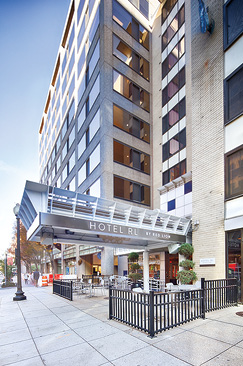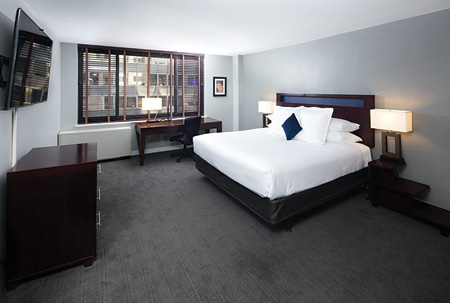- Home
- Media Kit
- Current Issue
- Past Issues
- Ad Specs-Submission
- Ad Print Settings
- Reprints (PDF)
- Photo Specifications (PDF)
- Contact Us


![]()
ONLINE

Focused on the
Pacific Northwest
Editor’s Note
Greg Mount joined RLH Corporation as President and Chief Executive Officer in January 2014, with more than 25 years of experience in the industry. Prior to joining RLH, Mount served as President of Richfield Hospitality, Richfield Hospitality China and Sceptre Hospitality, where he executed a number of strategic deals including the acquisition and merger of Whiteboards Labs into Sceptre Hospitality. Previously, he held senior roles at Sage Hospitality, as well as Starwood Hotels & Resorts Worldwide, where he led the full-service division responsible for developing franchises and management contracts for the Westin, Sheraton, Four Points by Sheraton, Le Meridien, and Luxury Collection brands in the United States, Canada and the Caribbean. Earlier, Mount held senior operating positions at Interstate Hotels Corporation and Marriott International Hotels, working his way up through a number of hotel and regional management positions before moving into development.
Company Brief
Hailing from the Pacific Northwest, Red Lion Hotels Corporation can trace its beginnings all the way back to 1937 with hotel developers and has since transformed into RLH Corporation (redlion.com). Its family of brands includes Hotel RL, Red Lion Hotels, Red Lion Inn & Suites, Lexington, Settle Inn, Signature Inn, GuestHouse, America’s Best Inns & Suites, Americas Best Value Inn, Canadas Best Value Inn, and Country Hearth Inn & Suites. RLH caters to travelers from all walks of life with a warm staff, spacious rooms and affordable rates while seeking to introduce local experiences to ever-savvy guests.

Hotel RL in Washington, D.C. exterior
Will you discuss the history and heritage of RLH and what excited you to join the company?
When a few of the other executives and I came onboard, we were excited about the heritage of the company. It is a 40-plus year-old organization that has a great heritage. It grew from a place on the Pacific Northwest where people held their family vacations, weddings and proms. It had a great historic glow to it.
The ethos of the company was also rooted in the Pacific Northwest, which we saw as a distinct advantage when we came onboard.
When we started looking to reposition the company and the brand, and to look forward at what we should leverage upon, the Pacific Northwest was the focus and it continues to be in our brands, in our organization and in our culture. We have utilized this as our cultural base, and it’s the North Star for us as we go forward with everything we do.
Is there close coordination between the brands or do they operate independently?
The brands do benefit from each other in terms of the innovations that are derived from one brand or another. At the same time, the brands are very different and distinct. They each have their own team, their own focus on consumer segments, and they each stay fairly siloed as it relates to the digital e-commerce and marketing that goes on around them because they have different consumers.
We are able to work them vertically. We have a number of owners that own multiple brands in multiple segments, and that is always an advantage for us as well.
Hotel RL was developed to be an upscale conversion brand. That brand, not unlike my time at Starwood, is somewhat similar to W Hotels, and is really where all the innovation occurs within our organization.
When we are building our mobile app or figuring out how to go without a desk at check-in, or any of the other innovations we have put forth from a technology or service standpoint, it always starts at Hotel RL and evolves into the other brands.

Hotel RL in Washington, D.C. guestroom
While the individual brands are at the forefront in terms of branding, is it also important to promote the RLH name?
This is a question that is becoming pertinent in the current environment as it relates to how consumers are booking rooms.
The ways of the travel consumer are changing, but I would argue that brands are becoming less important, although they will always matter since they designate the price value for the consumer.
That said, the bigger brands are commoditizing the locations they’re in and are asking the consumer to make a decision based less on the brand and more on the location and price.
We also see that the millennial generation, which is now upwards of 37 years old, just eclipsed the Baby Boomers in their overall spend on travel and hotels, and are very different consumers. They are looking for location and experience and online reputation and expect to be able to communicate with the hotel when and how they want to.
It’s a different positioning than we have seen before. The way that digital e-commerce has evolved and is evolving means the disruptors are going to get disrupted and will continue to be.
Google controls 90 percent of search worldwide, which basically means that if we’re not in the first five hotels listed on a mobile device, we’re not going to be seen. The landscape is changing rapidly.
Is it challenging to balance short-term pressures with the need to make long-term investments?
When we came onboard, we had a balance sheet that needed to be cleaned up. We had a number of assets that had to be sold and we had a number that needed to be renovated and sold. We’re now in a position where we’re selling those assets and are almost becoming asset light.
I look back on this process and it was a short-term strategy with more of a long-term goal, which is really to become a franchising organization that has much stronger EBITDA and less capital requirements. This is rewarded in the public markets more than real estate-based hotel organizations.
We continually need to and are making investments in innovation and technology to stay relevant and pertinent today and for the future.
The landscape is going to change pretty dramatically and, if we don’t reinvent or innovate around what that is going to look like and make those investments in the short term and long term, it will have a negative impact on us.
We take this very seriously and we have made, and will continue to make, significant investments in the short term and long term.![]()